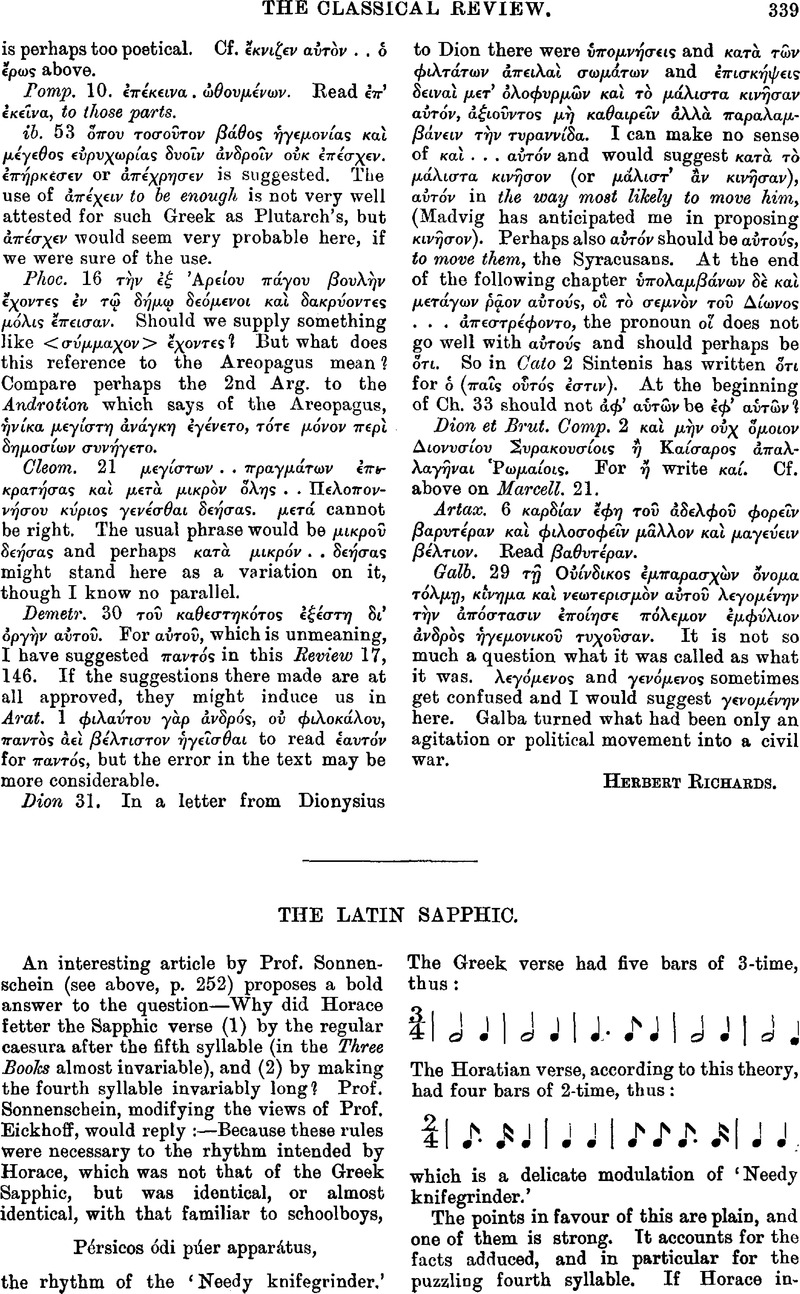No CrossRef data available.

page 340 note 1 I do not say that the Latin word-accent either originally was a ‘beat’ or had become such by the age of Augustus. That it then affected the beat, is seen in all branches of Augustan poetry. What precisely it was or had been, we shall hardly know until we can hear ancient Romans recite.
page 340 note 2 Prof. Sonnenschein gives another reason for the caesura (p. 253) and quotes from Prof. Eickholf yet another, both ex hypothesi valid, but not, I think, so obvious as the above.
page 341 note 1 I should say that I know them only through Prof. Sonnenschein. Prof. Eickhoff is, it seems, now prepared to say that the Greek Sapphic, the ode π∘ικιλθρ∘νε for instance, is 2-time. At present 1 find this incomprehensible.
page 342 note 1 vv. 14, 35, 58, 59, 61.